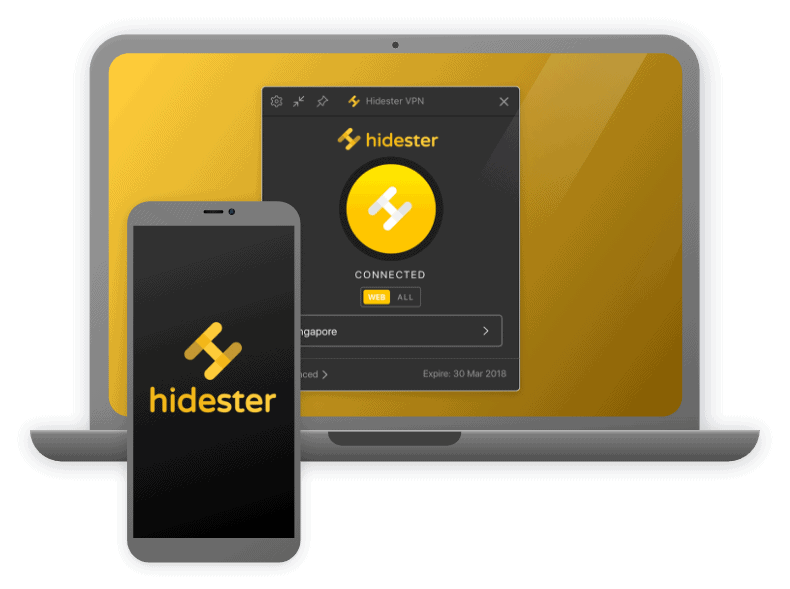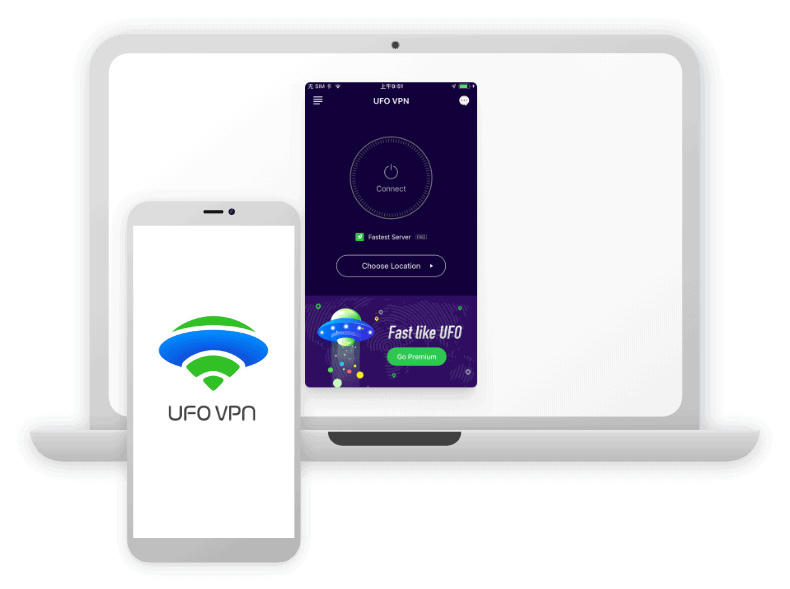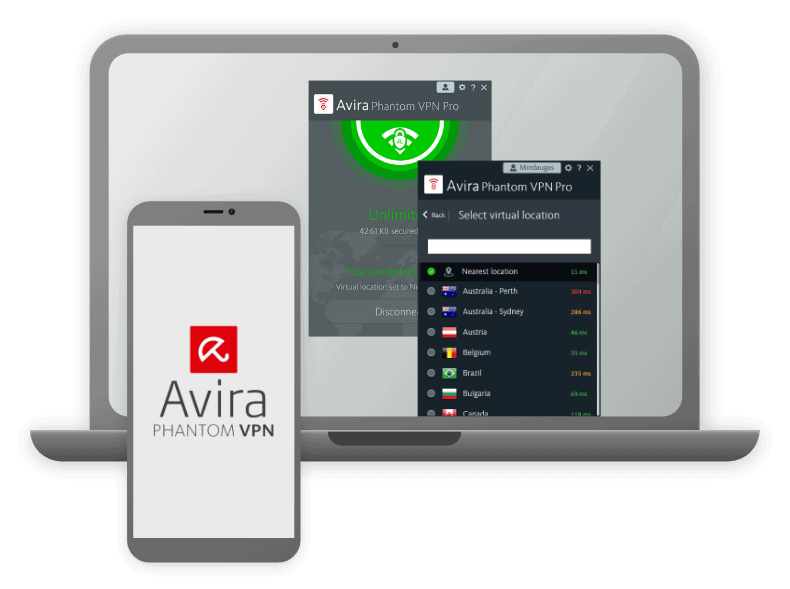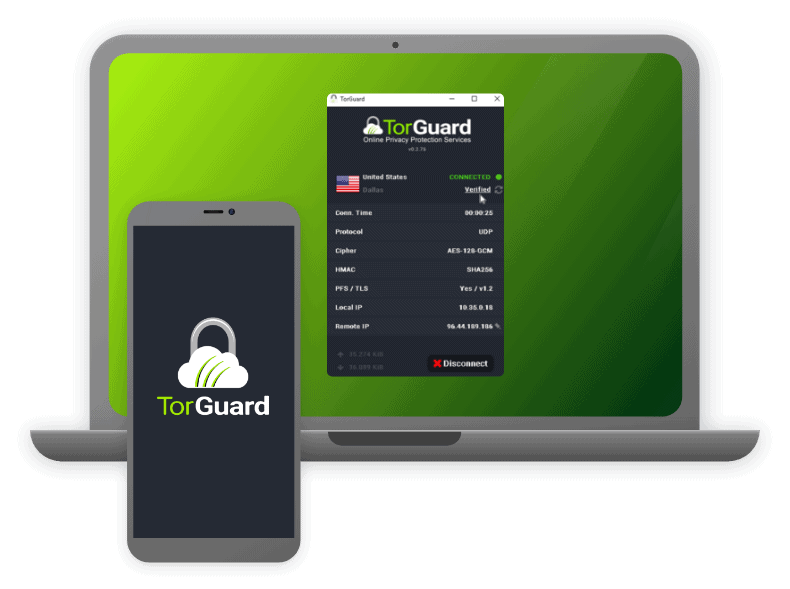Aura VPN Review and Pricing 2026: Decent VPN Within A Complete Security Package
Aura’s VPN comes as a part of the company’s identity protection package; it’s not bad, but there may be better VPNs out there.
 Brett Cruz, Privacy and Digital Security Expert
&
Brett Cruz, Privacy and Digital Security Expert
&
 Gene Petrino, Home Security Expert
Last Updated on Sep 11, 2025
Gene Petrino, Home Security Expert
Last Updated on Sep 11, 2025
What We Like
- Part of a comprehensive identity protection suite: It’s not just a VPN. The package includes identity and credit monitoring, identity theft insurance, and antivirus.
- Good for 10 devices per user: It doesn’t offer unlimited simultaneous connections, 10 devices per user is enough for most people.
- Great speeds when on nearby servers: Our tests show that choosing the nearest server yields fast speeds, averaging only a 15 percent decrease compared to our normal speeds.
What We Don't Like
- Smaller server network: Aura doesn’t disclose its total server count, but there are servers in only 80+ countries. Most top VPNs have servers in 100+ countries.
- No standalone VPN option: Aura’s VPN only comes as a part of the Aura identity protection suite, and packages are pricier than typical dedicated VPNs.
- Lower encryption, unknown protocols: The 128-bit AES encryption is slightly below the industry standard, and unlike dedicated VPNs, there’s no information on what VPN protocols Aura uses.
Bottom Line
The Aura VPN isn’t the first thing that comes to mind if you’re looking for the best VPN. It’s got a much smaller server network compared to NordVPN and Proton VPN, it doesn’t let you customize your VPN protocols, and the standard encryption is below par – 128-bit AES. Now that that’s out of the way, let’s talk about why you might want to consider choosing Aura for your VPN needs.
Aura is best known for its top-notch identity protection service. VPNs and antiviruses come in handy when it comes to stopping identity theft, and Aura’s identity protection packages include both. Plus, we found through weeks of hands-on testing that the VPN is decent enough. You just have to set the right expectations when it comes to features and performance. We’ll help you with that. Keep reading to find out our full Aura VPN experience.
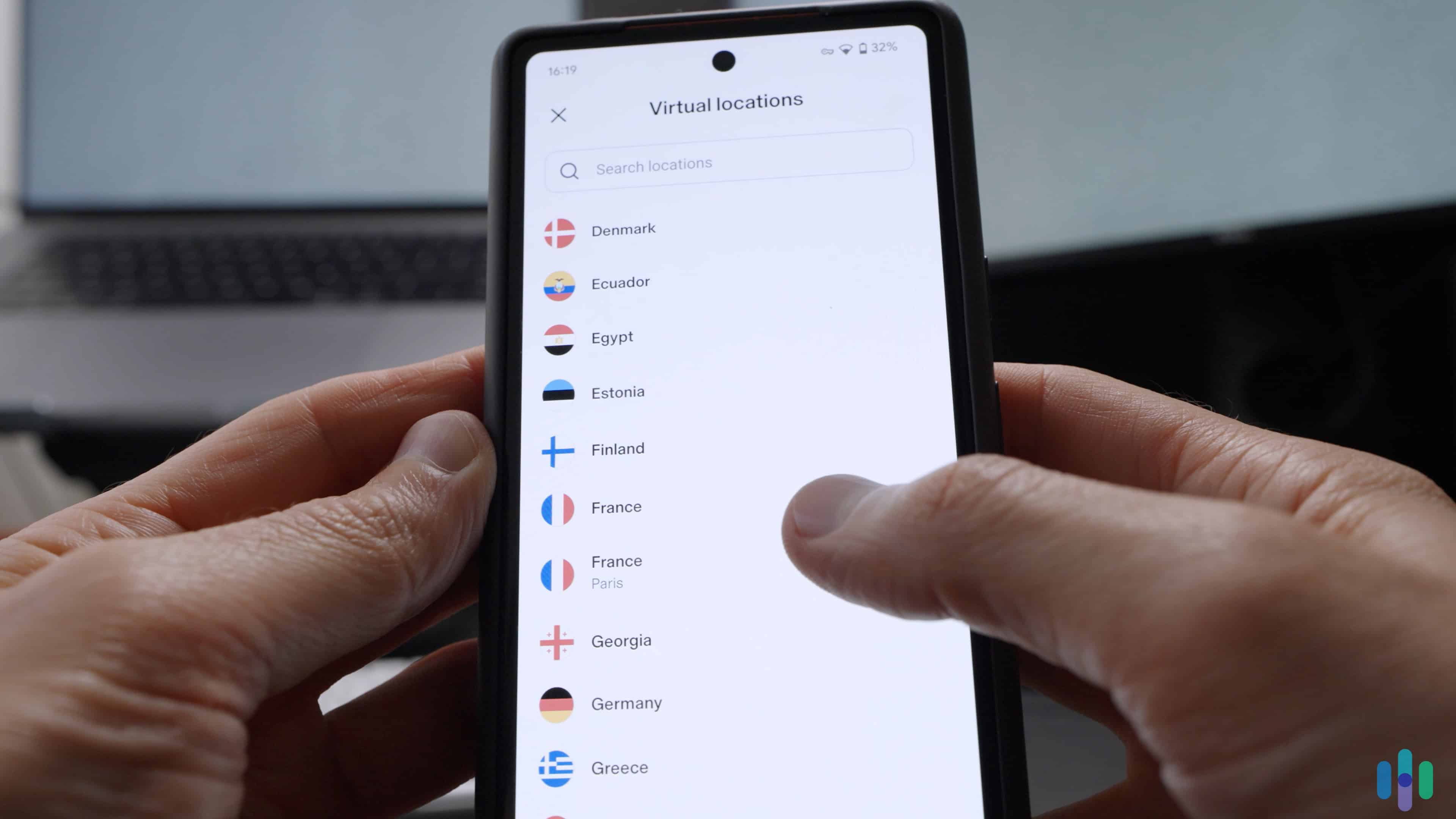
- Comes with identity and credit monitoring, ID theft insurance, and antivirus
- Up to 10 devices per user
- Core features include a kill switch, split tunneling, and P2P servers
Aura VPN Buying Experience and Pricing Guide
Because Aura doesn’t offer VPN-only plans, the entry cost is higher than typical VPN pricing. Aura packages start at $12 per month if you pay monthly or $9 per month if you pay one year at a time. Compare that to NordVPN’s pricing – $4.99 per month if paid yearly – and you’ll see a real difference.
Here’s Aura’s price list, with the main difference between the plans being the number of users they accommodate:
| Aura Pricing and Inclusions | Individual | Couple | Family |
|---|---|---|---|
| Monthly Price | $12 | $20 | $30 |
| Annual Price | $108 ($9/mo.) | $204 ($17/mo.) | $300 ($25/mo.) |
| Features Included |
|
|
|
Note that for the VPN (and antivirus), there’s a 10-device limit per adult user. That means if you’re on the Couple plan, you get to protect up to 20 devices between you and your partner. If you’re on the Family plan, you can protect up to 50 devices. That’s almost as good as VPNs that offer unlimited simultaneous connections, such as Surfshark’s subscriptions.
>> Related: Read our 2026 Surfshark Hands-On Review
Aura Free Trial and Money-Back Guarantee
We opted for the Individual plan (with annual billing) to fully test out the Aura VPN, and we were pleased that there’s a 14-day free trial and a 60-day money-back guarantee on top of that. We rarely see that from standalone VPN plans, where the trial and money-back guarantee are typically rolled together. That’s the case for the best VPN free trials we’ve signed up for.
With Aura, here’s how the trial and money-back guarantee works:
- 14-day free trial: We completed the sign-up process and provided our payment information, but didn’t get charged until after the 14 days. You can also cancel before the trial ends.
- 60-day money-back guarantee: You can ask for a refund within the first 60 days of your subscription if you wish to cancel. This is exclusive to the annual plans.
Pro Tip: Check out our CyberGhost review if you want a VPN with a long testing window. When we signed up for their annual plan, we got a 45-day money-back guarantee. Most VPNs give users only 30 days to cancel.
Aura’s Pricing vs. The Competition
It’s hard to make apples-to-apples comparisons between Aura and dedicated VPNs, but NordVPN is the closest competition we can think of. NordVPN’s Prime plan (highest tier) also includes identity monitoring, identity theft protection, a password manager (NordPass), antivirus-like features, and the VPN itself.
Here’s a head-to-head comparison between NordVPN Prime and Aura’s Individual plan.
| Pricing and Features | Aura Individual Plan | NordVPN Prime Plan |
|---|---|---|
| Monthly billing | $12 | $17.99 |
| Yearly billing | $108 ($9/mo.) | $107.88 ($8.99/mo.) |
| Identity and credit monitoring | Yes (Aura ID Theft Protection Review) | Yes (NordProtect Review) |
| Identity theft insurance | $1 million per adult user | $1 million per adult user |
| VPN | Yes | Yes (NordVPN Review) |
| Antivirus | Yes (Aura Antivirus Review) | Malware downloads and malicious sites only |
| Password Manager | Yes (Aura Password Manager Review) | Yes (NordPass Review) |
Aura and NordVPN’s prices are almost identical, so it all comes down to which service offers superior products for each category. We’ve tested both plans before, and here’s our verdict:
- Identity and credit monitoring: Aura
- Identity theft insurance: Aura
- VPN: NordVPN
- Antivirus: Aura
- Password manager: NordVPN
Expert Recommendation: Pick a service based on your priorities. If you’re mainly looking for identity protection, Aura is the obvious choice. If you’re looking for superior digital security tools, on the other hand, go with NordVPN.
How Aura VPN Features Work
Aura’s VPN may not be able to hold a candle to some of the best standalone VPNs out there, but it’s still a decent VPN. In fact, it works just like any other VPN. When we connected to one of its servers, Aura encrypted our traffic and routed it through that server. This process hid our real IP address and kept our online activities private from our ISP and our office network.
We’d like to point out, however, that Aura’s VPN is integrated into its broader identity protection dashboard (see below). It doesn’t have a separate VPN app, so navigation can be challenging especially if you’re new to Aura’s services. On the bright side, once you get used to it, Aura’s dashboard is actually quite easy to use. Plus, you can access all features right there – from identity and credit alerts to the antivirus. And of course, all VPN features, too. Let’s learn more about them.
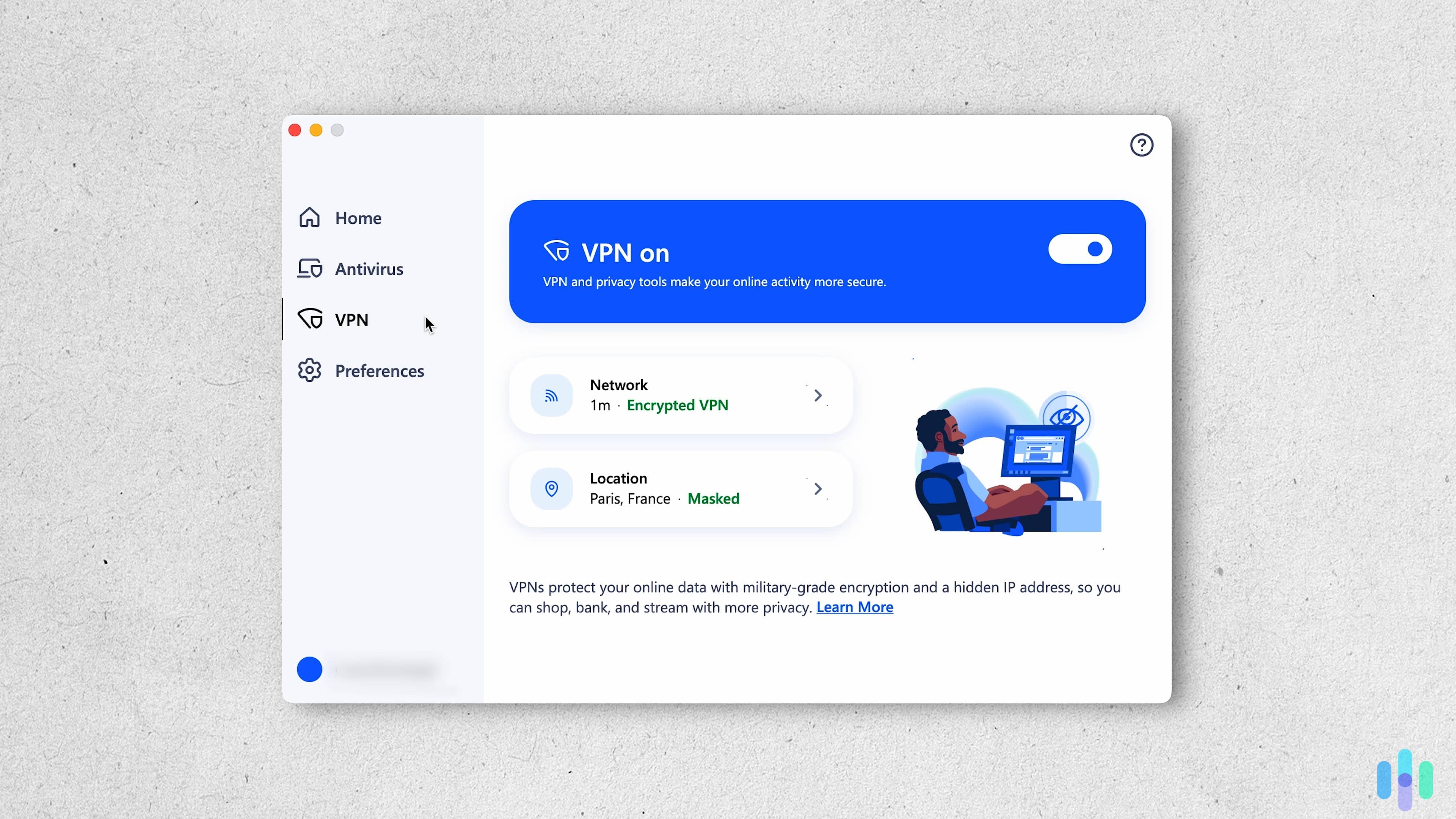
Server Network and Locations
Aura maintains servers in about 80 countries, which is a far cry from NordVPN and Proton VPNs 120+ countries. But still, that’s not bad. We saw servers in commonly used locations, including:
- Over 20 U.S. cities
- Canada
- Several European countries (Germany, France, the Netherlands, etc.)
- Parts of Asia (Singapore, Hong Kong, Taiwan, etc.)
- Five cities in Australia (Perth, Sydney, Adelaide, etc.)
- Africa
Aura doesn’t disclose exactly how many servers it has, if they run on diskless RAM, or whether they are physically or virtually located. These are things that standalone VPNs openly let their users know. But based on our experience, Aura at least has enough servers to support its current user base. Even during peak hours, we didn’t experience any problem with speed while connected to major locations such as New York, Switzerland, and Singapore.
>> Read More: The Best VPNs for Singapore in 2026
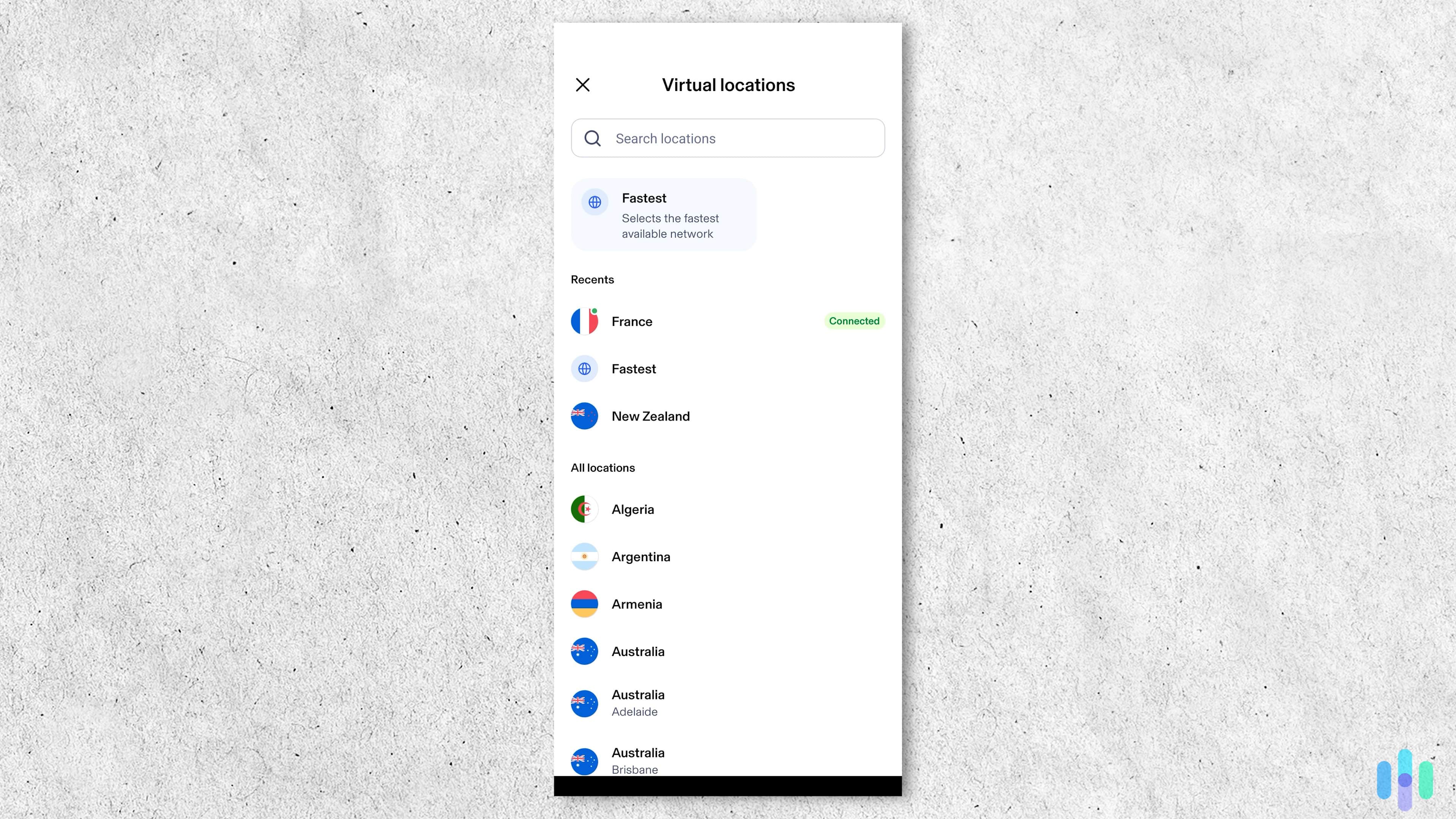
Logging Policy
Aura has a “no-logs” policy, but with a few exceptions. It logs your IP address upon connecting, and then deletes it when you disconnect. We’ve seen the same policy from services such as Surfshark, which still made our list of the best no-logs VPNs. Aura also logs anonymized data such as bandwidth usage and connection timestamps, but this is common even for the most privacy-focused VPNs.
Unlike NordVPN, Surfshark, and Proton, however, Aura hasn’t undergone independent audits yet. This is an industry practice where VPN companies invite security firms to inspect their servers, apps, and VPN infrastructure for potential security and privacy vulnerabilities. Its lack of auditing doesn’t make Aura a poor choice; independently audited VPNs simply have a slight edge.
>> Related: How to Test That Your VPN Is Working
Encryption and Protocols
Encryption is essential to VPNs, and the industry standard is 256-bit AES for VPNs that use the OpenVPN protocol and ChaCha20 for those that use WireGuard.
Aura doesn’t disclose which VPN protocol it’s using, but based on the fact that it uses a variation of the AES encryption and the overall speeds we got, we suspect it’s OpenVPN. Here’s the difference between the two commonly used VPN protocols:
- OpenVPN: Offers robust security and encryption, but slower speeds particularly when connected to distant servers
- WireGuard: Strong encryption and privacy, and offers fast speeds for everyday browsing
Unlike the PIA VPN we tested, which we hailed for the customizability of its VPN connections, Aura didn’t let us personalize our connections a lot. The encryption is set in stone. It uses 128-bit AES, which is a slight step down compared to the industry standard, but still plenty secure. You also can’t change the VPN protocol.
Expert Tip: If your VPN allows it, change the VPN protocol based on your current activity. WireGuard (if available) is excellent for streaming, gaming, and downloading thanks to speedy connections. OpenVPN is best if you really want to stay private and anonymous.
Other Core VPN Features of Aura
- A kill switch: Automatically disconnects your device from the internet if the VPN drops
- Split tunneling: Lets you choose which apps use the VPN and which apps bypass it
- DNS leak protection: Prevents your ISP from seeing which websites you’re visiting by using a private DNS server
- Automation: Lets you configure the apps to connect to a selected server location automatically when Aura detects that you’re connected to an untrusted network
- P2P and torrenting support: Like the best VPNs for torrenting, Aura’s servers support P2P connections, although we found that it’s a hit-or-miss with our uTorrent client
We particularly liked the automation feature. According to recent cybersecurity reports, many public Wi-Fi networks lack adequate security measures such as encryption.1 Setting your VPN to automatically connect when your device is on an unsecure network is good practice. According to Cort Honey, an engineer and one of our digital safety experts:
“Man-in-the-middle attacks can easily be executed on unencrypted public networks. When this happens, attackers may be able to intercept your traffic, potentially stealing passwords, payment details, and other sensitive information that’s supposed to be private.”
We also tested the kill switch by simulating dropped connections. In our experience, it kicks in automatically and instantaneously, blocking all internet traffic until the VPN is reconnected. We ran the simulations 10 times, and the kill switch worked every single time.
Additional Security Components
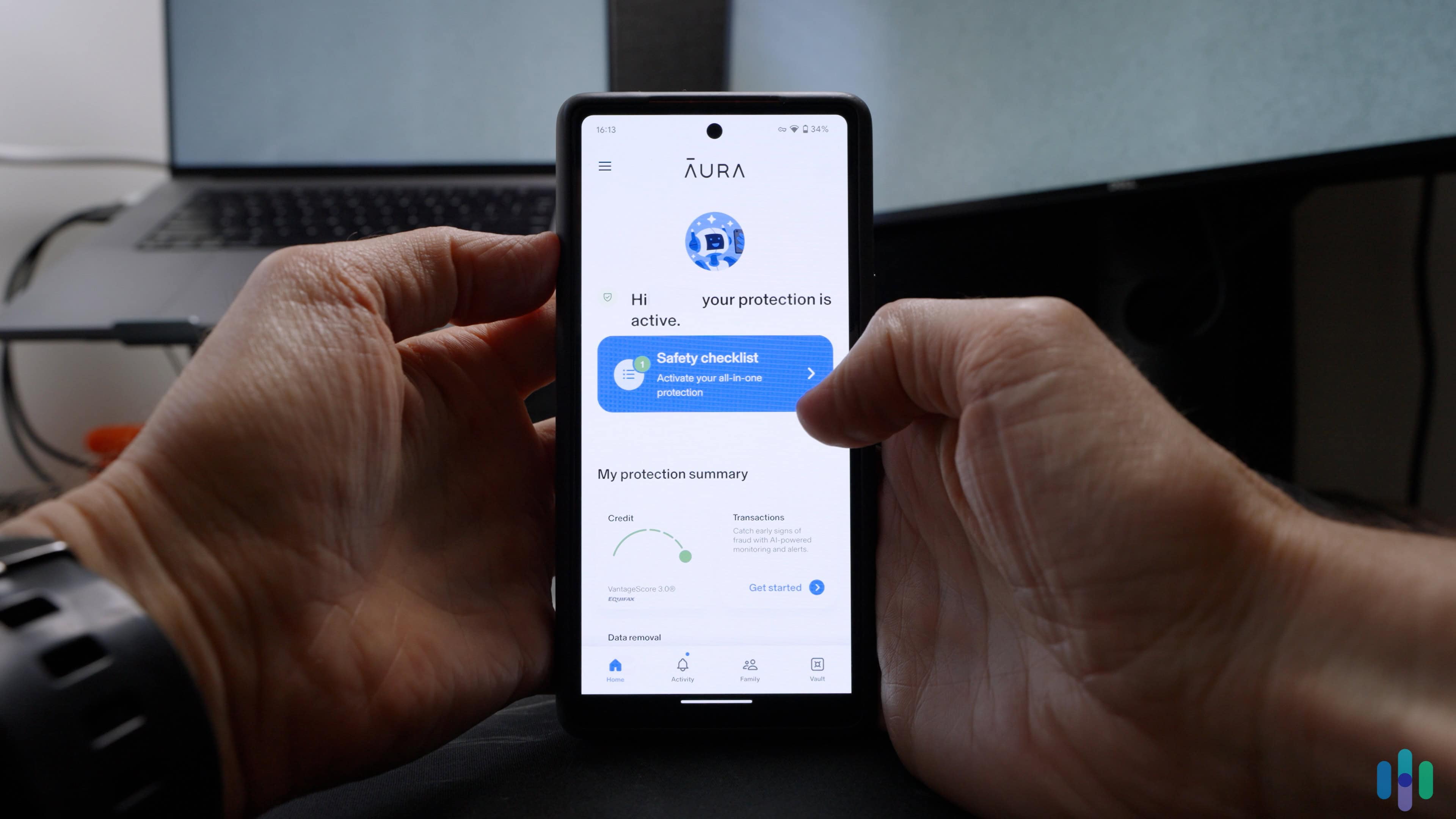
Beyond the VPN, our Aura subscription included antivirus protection, a password manager, and identity theft insurance up to $1 million.
During this particular round of testing, the antivirus detected 99.2% of malware samples — slightly below industry leaders such as Norton, but still a respectable score.
We also found the password manager user-friendly. It synced all our credentials across our Windows, macOS, Android, and iOS test devices. It also audited our logins and flagged the ones for which we currently still use weak or reused passwords.
And lastly, we didn’t deliberately leak our personal information just to try out Aura’s identity theft insurance, but we read through the entire policy. Gabe Turner, our editor-in-chief who was also an attorney for the New York State Department of Financial Services, calls the policy transparent and easy to understand.
Aura VPN Performance and Testing Results
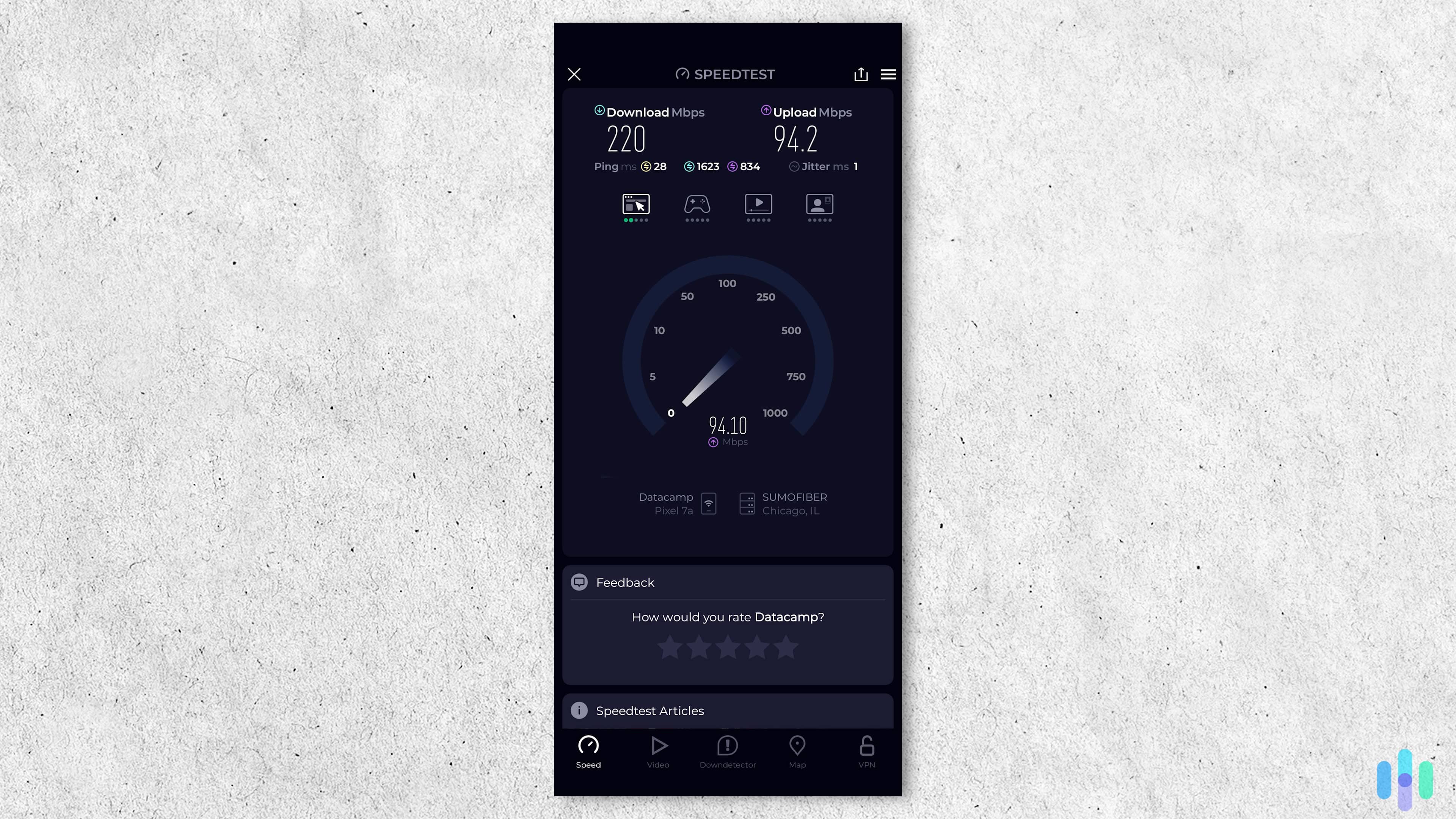
Beyond giving its features a try, we also conducted extensive speed tests across multiple server locations to assess Aura VPN’s performance. We used our office internet — a fiber optic connection that gets a reliable 500 Mbps (±15 Mbps) symmetrical upload and download speeds. We ran the tests using a Windows PC connected to the main router via an Ethernet cable for maximum network stability.
| Server Location | Download Speed (500 Mbps baseline) |
Upload Speed (500 Mbps baseline) |
Ping (6 ms baseline) |
|---|---|---|---|
| U.S. (Nearest) | 425 Mbps (↓15%) | 398 Mbps (↓20%) | 28 ms |
| U.K. | 312 Mbps (↓38%) | 285 Mbps (↓43%) | 95 ms |
| Japan | 198 Mbps (↓68%) | 175 Mbps (↓65%) | 165 ms |
| Australia | 156 Mbps (↓69%) | 142 Mbps (↓72%) | 210 ms |
The 15 percent drop when connected to the nearest server matches the industry averages and our results from when we tested the speed of the best VPNs. Just note that there are VPNs that can maintain better speeds. When we tested Proton VPN, the drop in download and upload speeds didn’t exceed 10 percent thanks to its VPN accelerator feature. Aura is still fast, but it’s not one of the top performers.
Connecting to more distant servers was a different story, though. The fastest VPNs we’ve tested were all able to keep the speed loss to less than 20 percent when connected to servers in Australia. Meanwhile, Aura’s speed loss hovered at around 70 percent on the Australia server.
>> Related: The Best VPNs for Australia in 2026
Streaming and Gaming Performance
Although it lacks streaming-optimized servers like PIA VPN and CyberGhost have, the servers we connected to were able to access Netflix U.S., BBC iPlayer, and Disney+. There were a few misses. Disney+ blocked three of our attempts to connect using a U.S. server. You just need a little bit of persistence. We encountered issues with Hulu and Amazon Prime Video, though. These services blocked our connection every single time.
>> Alternatives: Best VPNs for Hulu and Best VPNs for Amazon Prime Video
As for gaming, Aura VPN allowed for a lag-free experience when connected to nearby servers. That’s great if you’re a casual gamer just looking to protect yourself from potential DDoS attacks. The increase in game latency was barely noticeable in most titles we played (Fortnite, PUBG, NBA 2K, etc.), although if you’re a competitive gamer, you might prefer lower ping times offered by gaming-optimized VPN services.
Overall, we’d say that Aura is okay to use for casual streaming and gaming. Just don’t expect optimized performance all the time.
The Aura VPN User Experience
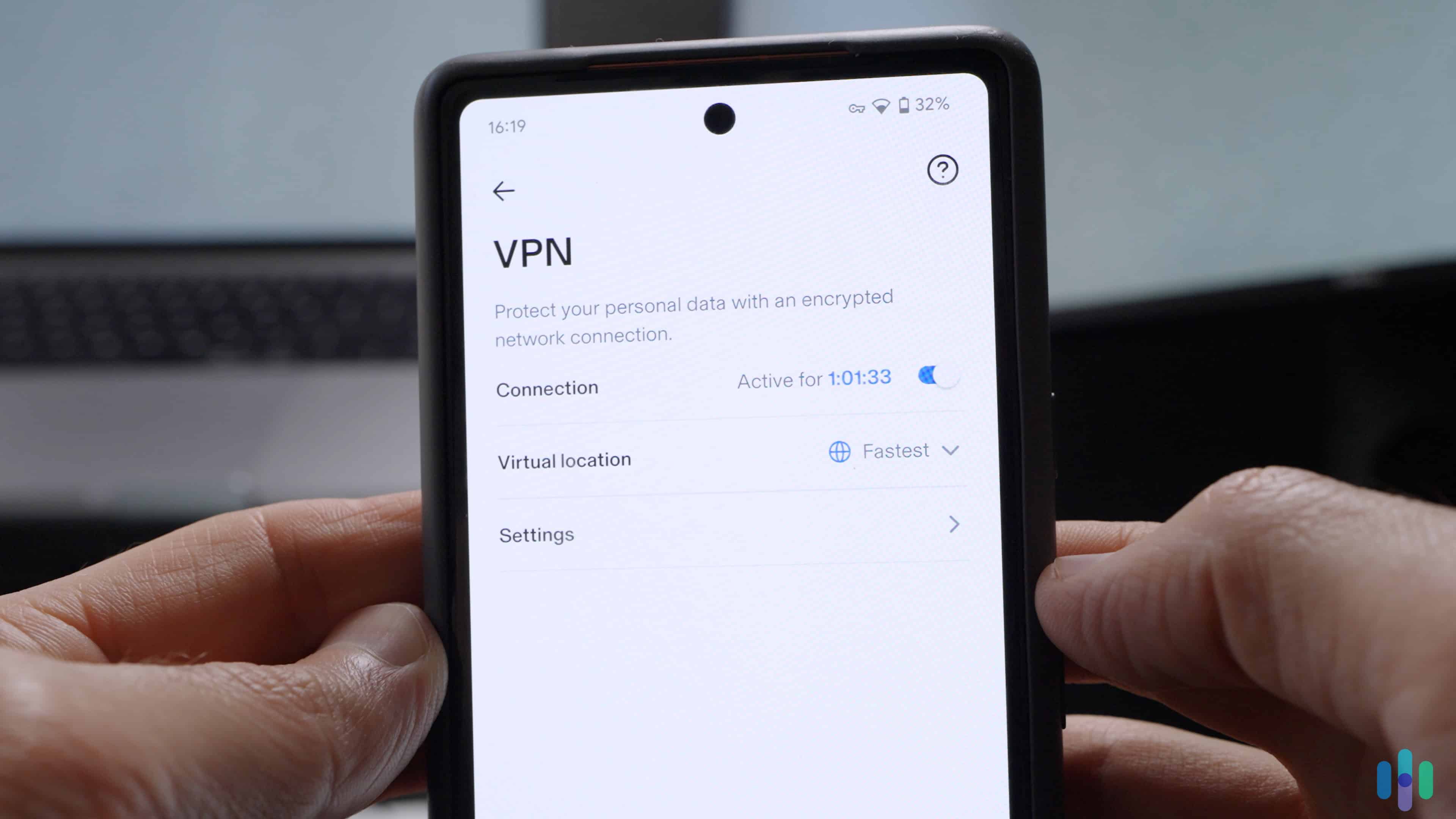
Setting up Aura VPN took a bit longer than we’re used to when setting up other VPNs because of the sign-up process. The identity theft protection service component of the bundle requires additional personal information that we had to provide before we could download the app. Once the app was loaded on our device, setting up the VPN itself took less than two minutes.
Aura VPN Desktop Experience
The desktop application features a clean, intuitive interface that we think even VPN newcomers will find approachable. We particularly like the one-click connect feature that automatically selects the fastest server available. It’s a common feature, but it’s convenient.
>> VPNs for Desktops: Best VPNs for Windows and Best VPNs for Macs
Aura VPN Mobile Experience
The mobile app closely mirrors the desktop experience. We like this kind of design consistency because it means you won’t have to learn multiple interfaces. If you know how to use the desktop app, you’ll know how to use the mobile apps as well.
>> VPNs for Mobile: Best VPNs for iPhone and Best VPNs for Android
Aura VPN Connection Experience
Connecting via either the desktop or mobile apps is easy, and more importantly, connections are stable. During our two-month testing period, we experienced only three unexpected disconnections (besides our simulated dropped connections). Every time, the kill switch kicked in, and the VPN automatically attempted to reconnect.
Aura Customer Support Experience
We tested Aura’s customer support multiple times through different channels. Live chat responses were instant, but powered by a bot. We had to type out our questions first, then ask for a live agent to connect to a real human. This usually takes about one or two minutes, depending on the queue. On the plus side, the agent we chatted with seemed knowledgeable and was able to answer technical VPN questions without relying on scripts.
We recommend using live chat support every time. It took a lot longer to get a response when we tried out email support. During business hours, the initial response takes around four to six hours. When we sent an email request one weekday night, however, we had to wait until afternoon the next day to get a response.
How Aura Compares to Other VPNs
Aura vs. ExpressVPN
ExpressVPN costs $12.95 monthly, but offers only the VPN with up to eight simultaneous connections. It sounds like a poor deal compared to Aura’s $12-per-month subscription with lots of extras, but ExpressVPN’s VPN service is far superior. It has servers in 115 countries, all servers run on RAM, and the privacy policy has been independently audited. ExpressVPN’s encryption and VPN protocols are also customizable, and it even has its own proprietary protocol called Lightway. In our experience, it’s fast, secure, and very stable.
Read our ExpressVPN review for more details.
The More You Know: Unlike traditional VPN servers that run on hard disk drives, RAM-based servers do not retain recoverable data after being rebooted. This makes RAM-based servers more ideal for privacy-conscious users.
Norton VPN
Much like Aura, Norton is better known for another one of its products — the Norton antivirus software. The VPN is typically included when you buy a Norton antivirus package. The difference from Aura is that you can also buy Norton VPN separately.
In our Norton VPN review, however, we explain why we believe it’s better to buy the VPN as part of an antivirus subscription. The main reason? The VPN alone is subpar, even compared to Aura’s VPN. It has servers in only 40+ locations, not all servers support P2P connections, and the kill switch wasn’t very reliable during testing.
Bottom line? While Aura can’t hold a candle to specialized VPN services like ExpressVPN, it’s still a very solid VPN that can fare well against all-in-one services such as Norton.
Conclusion: Is Aura Good Enough?
After two months of extensively testing Aura on our desktops and mobile devices, we’ve concluded that Aura VPN serves a specific niche effectively. It may not stand out as a VPN — it’s not the fastest, it doesn’t have a lot of server locations, and it lacks advanced features — but for users seeking comprehensive digital and identity protection without juggling multiple subscriptions, Aura delivers great value.
It’s not that Aura VPN is bad. We saw that it can perform decently in terms of speed, streaming, and gaming. The user experience was also smooth, and the apps are user-friendly. Most importantly, it has all the core features we want to see in a VPN.
We recommend testing out Aura before going all-in. Take advantage of the 14-day free trial, and then after that, sign up for a one-year subscription to get your account covered by the money-back guarantee. That way, you can know for sure if it’s the right all-in-one service for you.
FAQs
-
Does Aura VPN work in China?
Aura VPN doesn’t officially support usage in China, and it may not work in the first place. It lacks obfuscation features needed to bypass China’s strict online censorship. Users in China should consider NordVPN or Surfshark instead, both of which have obfuscated servers.
-
Can I use Aura VPN for torrenting?
Yes, Aura allows P2P traffic on all servers, but whether or not you can torrent with it depends on your torrent client. In our tests, Aura had some issues supporting torrent downloads via uTorrent.
-
How many devices can connect simultaneously?
Each Aura user can connect up to 10 devices simultaneously. That means with the Individual plan, 10 is the limit; with the Couple plan, 20 devices; and with the Family plan, your family can connect a total of up to 50 devices.
-
Does Aura VPN keep logs?
No, Aura maintains a strict no-logs policy. It doesn’t store IP addresses and website history, but it records IP addresses at the start of every session and then deletes it right after. It may also collect anonymized connection data such as connection timestamps.
-
Is there a free version of Aura VPN?
Aura doesn’t offer a free VPN, but it provides a 60-day money-back guarantee for annual subscriptions on top of a 14-day free trial if you want to test out the service. .
-
Can I buy just the VPN without other features?
No, Aura only offers their VPN as part of the complete security suite. Standalone VPN access isn’t available.
-
NordLayer. (2025). Public Wi-Fi risks that put your business data in danger.

